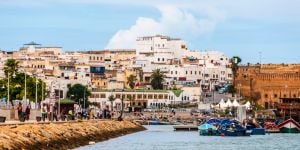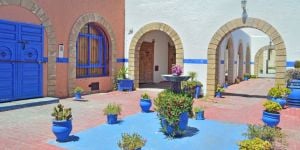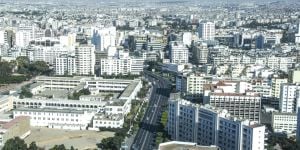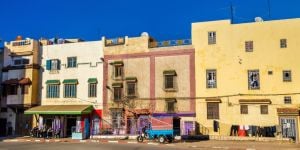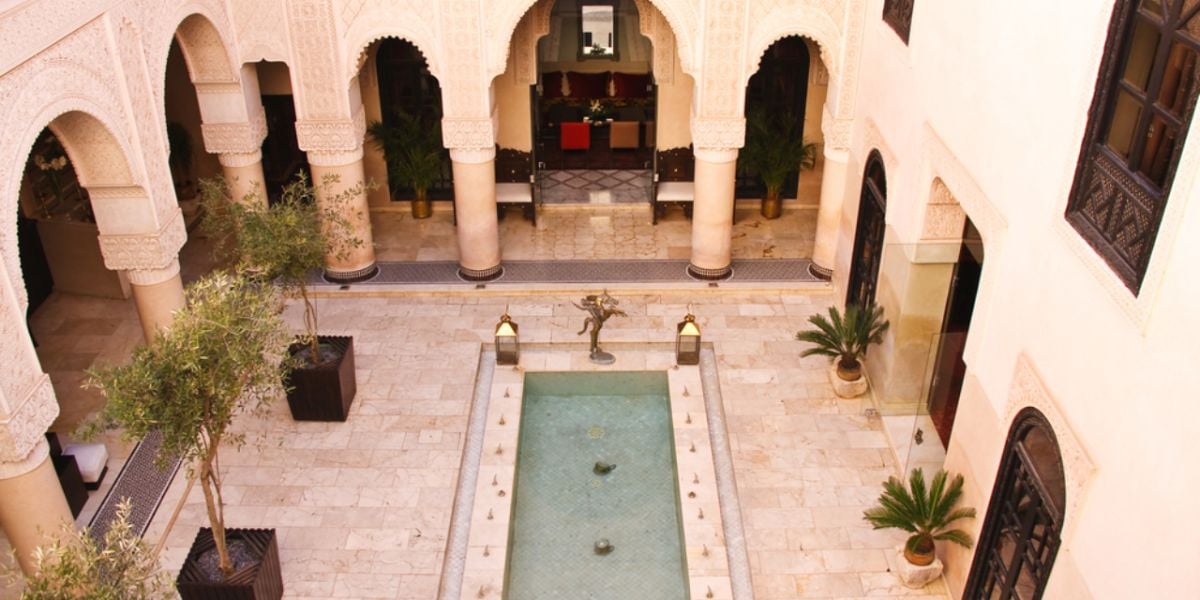
Finding accommodation in Morocco can be challenging if you are new to the country. However, Moroccan apartments and villas can be wonderful places to live in. Homes are generally built to stay cool in hot summer months, with tile floors and spacious rooms. Almost all homes have some kind of balcony or outdoor space, which can be a wonderful spot to relax and enjoy sunny afternoons.
House hunting in Morocco
To find accommodation in Morocco, you can look for apartments or villas to rent on several websites. The rental listings are generally posted by agents, who may be able to show you several options depending on your needs. Generally, agents will charge up to one month's rent as a fee for finding you an apartment, along with asking for a down payment (or deposit) of one month's rent that should be returned to you at the end of the lease, as long as there is no damage to the property.
Another good way to find an apartment in Morocco to rent is through word-of-mouth. You can sometimes avoid paying an agent by asking shopkeepers and cafe waiters in the neighbourhood if they know of any vacancies. Talking to friends or coworkers who live in the area where you want to move is also a great way to find out what prices you might expect. You can also just walk around neighbourhoods and see if there as a “For Rent” ad hanging from a window. Keep in mind that most agents and landlords might not be fluent in English, so it may be necessary to find a translator if you do not speak Moroccan Arabic or French.
Another good way to find rental housing in Morocco and perhaps the most efficient one is to look online in Facebook groups, and websites like Avito, Maroc Annonces, Mubawab and Askoon.
Apartments and houses can be rented at any time of the year. The process of finding somewhere to live is generally fast enough that you can spend a week in a hotel while you look for long-term accommodation.
Good to know:
Many landlords will ask for two months' pay upfront. However, many won't.
Signing a lease in Morocco
Once you find an apartment, it is necessary to sign the lease with your landlord and get it notarized. Leases generally last for one year at a time, and payment is made monthly. Electricity and hot water bills are paid by lessees and can be paid monthly online or in person at the office of the utility company or a fast payment service areas. Landlords are not required to include hot water tanks, stoves, or refrigerators in unfurnished apartments, so it is wise to compare apartments from several landlords to ensure that you are getting a fair deal. You can also find a furnished apartment for rent but for a higher price (starting around 3,000 Dh). Buildings with a concierge require tenants to pay a monthly fee to help cover the costs of cleaning the building's common areas.
You may also have to pay a tax (equivalent to a month's rent) for the paperwork and install the water and electricity meters in your name, which is done at the utility company (the homeowner will guide you through the process). Most landlords will not require this, but to do so, you fill out a form (which you can take from the utility company counter) and have it signed by the landlord and present it with a copy of your ID.
Cities in Morocco
Housing prices in Morocco vary significantly by area and by property type. Apartments and villas in big cities like Casablanca, Rabat, and Marrakesh can be very expensive, particularly in central neighbourhoods. Casablanca is known as the most expensive city, as it is the economic capital, and is also the city with the most jobs opportunities. Generally, it is less expensive to live further from a city, but there are some newer housing developments outside of cities that can be quite expensive. Smaller cities tend to have much lower housing prices and can be very cheap in comparison to homes in Europe or the United States. Find in this guide information on accommodation in Casablanca and Marrakesh.
Monthly rent in most metropolitan cities for a decent apartment to be at least 2,500 dirhams, and can go up to 4,500 dirhams in central neighbourhoods. Consider also the place where you want to rent; central neighbourhoods are generally safe during the day. There is also the possibility of sharing the rent; you can look for expatriates flat-sharing posts on social media, notably Facebook, where you can find many groups for expats in Morocco.
Types of accommodation in Morocco
In most metropolitan areas, expect the rent price for an apartment to begin from 2,000 to 2,500 Dh and from 3,500 dirhams in central neighbourhoods. In cities like Fes, Meknes and Tangier, rent is cheaper. If you don't want to live in an apartment, you can rent a Riad or a house in the old medina for an affordable price as well. Villas can go up from 8,000 dirhams.
Most old neighbourhoods, especially in Casablanca, tend to be rough but not exactly dangerous. So you may take your chance, and it will take some getting used to, but the rent is cheaper, and it's close to the downtown area.
Good to know:
The cities that attract most expatriates like Casablanca, Rabat, Agadir, Tangier and Marrakech, are relatively more expensive than others. Still, you can choose to live in a suburban town that is a few miles from the downtown area such as Mohammedia, a beautiful little beach town 25 km from Casablanca downtown (30-minute drive) with relatively cheaper rent and safe neighbourhoods, Yet, some suburban towns like Salé (12 km from Rabat) aren't exactly safe.
Buying property in Morocco
Buy property in Morocco is quite tempting for expatriates as the price tends to be cheaper than in European and American countries. The price for an apartment begins from 250,000 dirhams, but for a decent one, expect 300,000 to 400,000 dirhams and higher in central neighbourhoods. You can also buy a land plot, and build your own house (expect the lot to be around 2 million dirhams for around 400 square meters).
Good to know:
Many real estate companies stop the building process before completion due to financial difficulties, so if you consider buying a property in Morocco, make sure to do so from a big or reputable company, or from a project that's already finished.
Useful links:
We do our best to provide accurate and up to date information. However, if you have noticed any inaccuracies in this article, please let us know in the comments section below.
